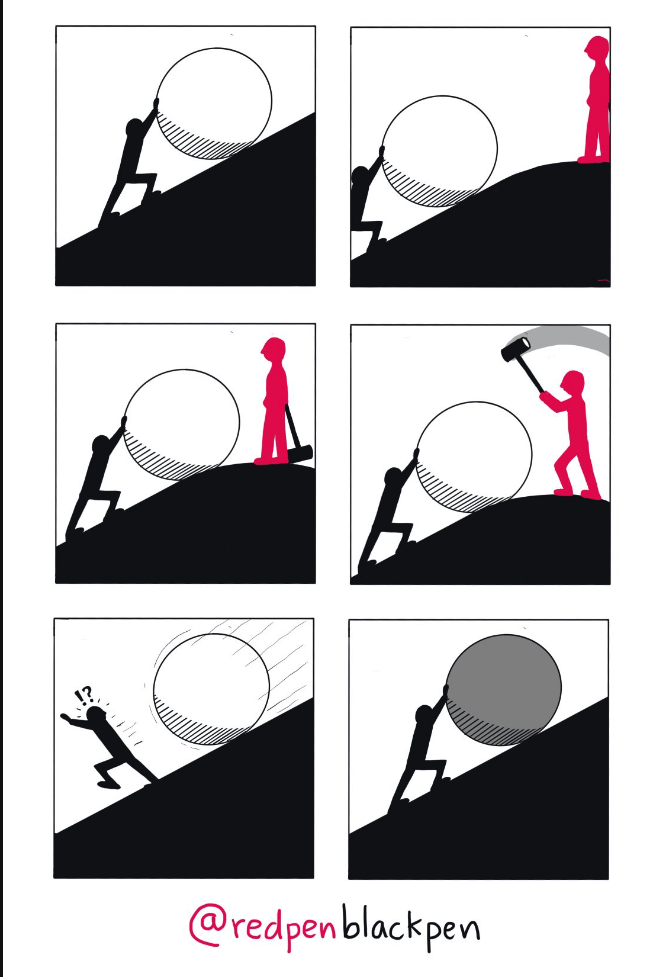A cold rain is falling.
But I’m out of my bed.
As the coffee is calling.
Can’t get this out of my head.
The Big Picture -Â
By Glynn Wilson -Â
WASHINGTON, D.C. — What do Napoleon Bonaparte, Thomas Paine, William Wordsworth, Edmund Burke, Immanuel Kant, Fredric Jameson, and Bob Dillon have in common? And what does that have to do with Elon Musk and Twitter?
Hmmm…
This is going to take some time and thought. It could break Google, and cause Twitter to explode.
But sometimes as a thinker and writer, I have to go beyond the headline grind.
This would never happen if I lived my life on Twitter, which it seems millions of people do these days.
Others live their lives on Facebook, and there is a difference I could explain.
Facebook is for the rabble, to gather with those to which they agree.
Twitter is for the elite — or those who want to destroy it.
Each makes the other crazy, and neither saves the day in the heat.
By the way, have you noticed the new slogan of Breitbart News?
“News, commentary, and destruction of the political/media establishment.”
Unfollow … do not share!
According to Google it was Napoleon Bonaparte, that short-lived hero or short tyrant, depending on your point of view, who first popularized the phrase: “From the sublime to the ridiculous, there is but one step.”
The proverb originates from the French expression: Du sublime au ridicule il n’y a qu’un pas.
It is sometimes defined as meaning: “Great undertakings may end in disaster.”
Perhaps Elon Musk can relate.
Although sometimes attributed to the French diplomat Tallyrand (1754-1838) or Napoleon, the expression is used much earlier by French historian Jean Francois Marmontel (1723-99), and later by Thomas Paine.
It is also sometimes defined as: “From the beautiful to the silly, from great to puny.”
For example, “They played first Bach and then an ad jingle — from the sublime to the ridiculous.”
Elon Musk was Time magazine’s person of the year in 2021, for funding the creation of electric cars and space rockets.
Then he blew it all to take over Twitter, and overnight became just another fake news Neo-Nazi troll.
The reverse saying, from the ridiculous to the sublime, is sometimes used with the opposite meaning.
Coined by Tom Paine in The Age of Reason (1794), in which he said the two are so closely related that it is but one step from one to the other, the phrase has often been repeated in either order.
In his treatise against religion, The Age of Reason, Thomas Paine discussed it.
“The sublime and the ridiculous are often so nearly related that it is difficult to class them separately. One step above the sublime makes the ridiculous, and one step above the ridiculous makes the sublime again.”
To put this into context consider this.
It has been by wandering from the immutable laws of science, and the light of reason, and setting up an invented thing called “revealed religion,†that so many wild and blasphemous conceits have been formed of the Almighty. The Jews have made him the assassin of the human species, to make room for the religion of the Jews. The Christians have made him the murderer of himself, and the founder of a new religion to supersede and expel the Jewish religion. And to find pretense and admission for these things, they must have supposed his power or his wisdom imperfect, or his will changeable; and the changeableness of the will is the imperfection of the judgement. The philosopher knows that the laws of the Creator have never changed, with respect either to the principles of science, or the properties of matter. Why then is it to be supposed they have changed with respect to man?
I here close the subject. I have shown in all the foregoing parts of this work that the Bible and Testament are impositions and forgeries; and I leave the evidence I have produced in proof of it to be refuted, if any one can do it; and I leave the ideas that are suggested in the conclusion of the work to rest on the mind of the reader; certain as I am that when opinions are free, either in matters of government or religion, truth will finally and powerfully prevail.”
END OF PART II
Living in these times, I find it hard to believe anymore in the veritable competition of ideas, that capitalist idea transformed from economics into literature, that the truth will always prevail. Much less set you free.
In fact, recent experience teaches that Mark Twain was more right, even though there are scholars who will swear he never said it.
“A lie will travel around the world before the truth can lace up its boots.”
This we know to be true, beyond a shadow of a doubt now. Just see what’s happened in the past few years on Facebook or Twitter, or Google for that matter.
Continuing down this road, Paine referred to English philosopher Edmond Burke, who he clearly was reading at the time he was thinking about this.
According to a more recent, semi-academic take on this, Edmund Burke and the Sublime, one writer says the idea of the sublime is central to a Romantic’s perception of, and heightened awareness in, the world.
“It was Edmund Burke, who in 1757 published a treatise of aesthetics called A Philosophical Enquiry into the Origin of our Ideas of the Sublime and Beautiful, and therefore provided the English Romantic movement with a systematic analysis of what constitutes the sublime,” this writer says, “and the various qualities which it possesses.”
It also supposedly gave the English Romantics a theoretical foundation, and a legitimacy, to their artistic expression.
Consistent with the dominant philosophical way of thinking in Britain during his life, Burke was an empiricist. That is, he believed that the formation of our ideas, and our knowledge of the natural world, is derived from our sensory experience, which is determined by our senses, perceptions or passions (feelings or emotions).
This is to be contrasted with the rationalist school of thought, which asserts that knowledge of innate ideas can be arrived at through intuition and reasoning alone, independently of the passions.
For Burke, it is the passions (as represented in our imagination), not reason, which determines how and what we see, hear and feel in the world.
Like most empiricists, Burke sought to apply a scientific method to his chosen subject-matter, so in the Enquiry he undertakes a scientific investigation into our various passions, and uses the collected evidence to explain the nature and power of the sublime.
His Enquiry opens with an introductory discussion on taste, where he observes that although we have a shared sensory apparatus, our idea and knowledge of a particular taste (and whether we like it or not) is the product of our own individual physical experience, combined with our social and cultural context.
“Thus opium is pleasing to the Turks, on account of the agreeable delirium it produces. Tobacco is the delight of Dutchmen, as it diffuses a torpor and pleasing stupefaction. Fermented spirits please our common people, because they banish care, and all consideration of future or present evils.”
Burke then turns to his observations on the sublime. He asserts that ideas of pain are much more powerful than those of pleasure, and that the strongest pain of all is the fear of death, which causes terror.
“Whatever is fitted in any sort to excite the ideas of pain, and danger, that is to say, whatever is in any sort terrible, or is conversant about terrible objects, or operates in a manner analogous to terror, is a source of the sublime; that is, it is productive of the strongest emotion which the mind is capable of feeling.”
The sublime, then, is our strongest passion, and it is grounded in terror.
I think you might see how this relates to recent politics and the media, as well as social media. It should not take much time or thought.
I’m sure it will go right over Elon Musk’s head.
Some seem to think he is smart. But in the academic circles I come from, an engineer is just an engineer. A hacker is just a hacker. Figuring out how to make a bunch of money by typing code and hooking people on wasting their time so that corporations can spy on them and sell them products is hardly a measure of intellect. To make a car run on electricity is nothing new, nor is using massive amounts of explosive fuel to send a rocket into space.
Yet to continue with Burke’s line of thought, the sublime is not exclusively an unpleasant emotion, for danger or pain can, in certain circumstances, give us delight. And the sublime has other qualities: it overwhelms our faculty of reason, such that we are rendered incapable of rational thought.
You see how this could be a problem? I would not call that a quality, necessarily, except in the sense of measuring what something does. To the extent that a sensational meme in a Facebook post or a headline on Twitter causes people to lose their minds and all rationality, he may be onto something.
“The passion caused by the great and the sublime in nature, when those causes operate most powerfully, is Astonishment; and astonishment is that state of the soul, in which all its motions are suspended, with some degree of horror.”
This heightened state of astonishment, where reason is driven out by “an irresistible forceâ€, and “the mind is so entirely filled with its object, that it cannot entertain anotherâ€, is more terrible to us when it is accompanied with a sense of the unknown (or what Burke calls obscurity).
For Burke, obscurity is an absence of clarity, whether in the sensory darkness of sight (or blinding lightness), or mental uncertainty of thought. As he observes, “everyone will be sensible to this, who considers how greatly night adds to our dread.â€
You see where I’m going with this, right? Or has the adrenaline from consuming too many posts and tweets simply rendered your brain incapable of sustaining a thought long enough to actually think about a thought?
Burke notes how religions have used darkness to create fear, such that “the druids performed all their ceremonies in the bosom of the darkest woods, and in the shade of the oldest and most spreading oaks.â€
I have written at length about how existential anxiety can be used to promote authoritarianism.
Related: How Existential Anxiety Leads to Authoritarianism
Further, it is vastness, or “greatness of dimensionâ€, which is “a powerful cause of the sublimeâ€, where “looking down from a precipice†on a mountain has greater impact depending of its depth and steepness, and where “the effects of a rugged and broken surface seem stronger than where it is smooth and polished.â€
Finally, another source of the sublime is what Burke calls infinity, where the eye is not able to “perceive the bounds†of something, or “see an object distinctlyâ€, and this gives rise to a “terrible uncertainty of the thing†perceived.
For Burke: “Infinity has a tendency to fill the mind with that sort of delightful horror, which is the most genuine effect, and truest test of the sublime.â€
The German philosopher Immanuel Kant critiqued Burke for not understanding the causes of the mental effects that occur in the experience of the beautiful or the sublime. According to Kant, Burke merely gathered data so that some future thinker could explain them.
“To make psychological observations, as Burke did in his treatise on the beautiful and the sublime, thus to assemble material for the systematic connection of empirical rules in the future without aiming to understand them, is probably the sole true duty of empirical psychology, which can hardly even aspire to rank as a philosophical science.”
— Immanuel Kant, First Introduction to the Critique of Judgment, X.
Forgive these pathways into academia obscuritas. Perhaps it’s the rain that leads my brain to wander off into this corner of the internet, or more accurately, the web.
One more quip before I go.
If you keep trodding down this path, it eventually leads you to the obscure poetry of Bob Dillon.
I do not wish to slander or praise the man, for some say he is a genius.
He is said to wander from the sublime to the ridiculous, as he does in his 17 minute-long song, “Murder Most Foul.”
Now if I wrote a word about the Kennedy assassination, no matter which words or in what order, there are those who would accuse me of being a conspiracy theorist. Of course conspiracy theorists seem to be the lords of today, making millions from their cranky ideas.
Nothing will put you in the poor house sooner than daring to tell the fucking truth.
But if you turn it into a poem or song, even a bad poem or bad song, and are obscure enough about your meaning, people will worship you like a god.
If you try to bring clarity of meaning to the masses, you are an “enemy of the people.”
Go figure. A fifth grader could do better. Only fifth graders are not on Facebook or Twitter.
They watch videos on TikTok instead.
And you say there is hope for democracy and human life on Earth?
I have many doubts.
I will continue to try my best to avoid the ridiculous — while constantly engaging in a never-ending story in search of the sublime.
Truth be told, it only exists in nature and nature’s laws, not in god or man. It’s certainly not on television, or Facebook or Twitter.
But you know me. It is my sincere belief that you have to get away from the screens and go outside in nature to find it.














